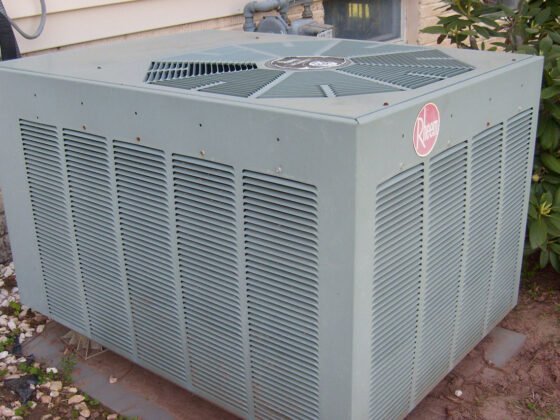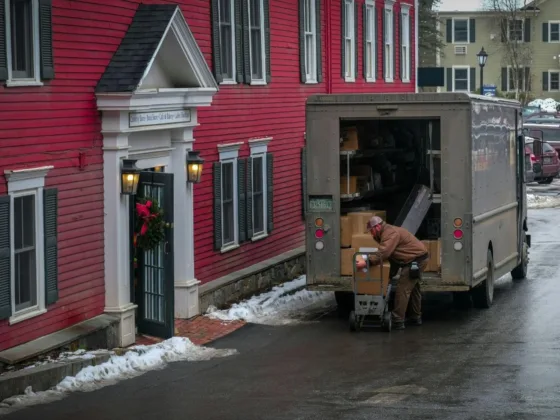Table of Contents Show
What does an HVAC technician do? An HVAC technician is a skilled tradesperson who specializes in maintaining, repairing, and installing heating, ventilation, and air conditioning systems.
HVAC systems can be found in homes, commercial buildings like hospitals or restaurants, public spaces such as train stations or airports, anywhere there is climate control. Every building or home you see ultimately will need an HVAC repairman at some point.

An HVAC technician or heating ventilation and air conditioning (HVAC) specialist is a highly trained professional who installs and repairs various types of equipment.
They also offer maintenance services for your system such as, locating problems that may exist and diagnosing them quickly to prevent long-term issues from arising.
Technicians are responsible for making sure buildings’ temperatures stay regulated, removing humidity, keeping unpleasant smells out of the building spaces where people spend their time, and improving energy efficiency by installing new equipment or ducting for airflow.
Technicians also do regular maintenance on these systems. This ensures everything runs properly and includes checking filters, cleaning parts inside refrigeration units, and other related tasks.
HVAC technicians may work indoors but often have to go outside depending on what needs to be repaired or replaced. They undergo extensive training and certification before they can work.
You must hire a specialist when something needs attention, never attempt repairs yourself or call someone who isn’t qualified.
There is always some level of risk involved in working around these systems, and if anything goes wrong while you try to fix them at home without professional assistance, an injury could occur.
Change of Season
An HVAC Technician installs, maintains, and repairs heating and air conditioning (HVAC) systems throughout homes and businesses ensuring the comfort of everyone inside by keeping temperatures balanced through changing seasons.
There are many different aspects to an HVAC technician’s job; some examples are installing new systems, maintaining existing equipment, and repairing broken parts.
Heating ventilation and air conditioning (HVAC) technicians must be well trained to safely operate these machines. There is very little room for error- any slip-up can cost you an eye or even your life!
Changes of season can be hard on units, especially those that are older. It is wise to schedule regular maintenance and tune-ups to extend the life of your unit.
Read Also:
Job Duties
An HVAC technician’s job duties include:
- Installing New Units
- Maintaining Old Units
- Repairing HVAC systems
- Diagnosing why an HVAC system is malfunctioning or broken
- Repairing faulty wiring or controls in an HVAC system
- Installing Water Heaters
- Ductwork Repair and Installation
- Commercial and Residential Projects
HVAC technicians must be able to work on a variety of equipment from different manufacturers. It is important to be up to date on the latest technology and education to stay current and knowledgeable.
This is one of the big reasons why choosing a company that prides itself on continued education is so important!
Education
HVAC technicians often have a high school diploma or equivalent, but many also receive an associate’s degree in HVAC from a community college, technical institute, or trade school.
In addition, most states require HVAC technicians to be licensed before contracting out their services – usually requiring an exam and several years of on-the-job training.
Usually, HVAC technicians work normal business hours in an office environment depending on the project they are working on.
The job may be physically demanding as it requires climbing ladders to service equipment that is located high above ground level; however, this varies between employers.
Who Employs HVAC Technicians
HVAC technicians work for HVAC companies, building services, or facilities management. Many employers offer paid training for new hires and encourage continuing education to maintain licensure requirements.
They may also provide on-the-job training and safety equipment like hardhats, masks, and gloves for workers whose duties require them to be in hazardous environments.
Some employers offer benefits, such as healthcare coverage or retirement plans, to full-time employees. Many HVAC companies are unionized. Technicians may be required to join the local union in their area upon being hired.
This provides job security and often compensation for overtime hours worked; however, some nonunion companies also provide these. If you require ac repair, furnace installation, ductwork, or boiler installation near you, give Hinese Mechanical a call today!









